Gigantes de la Industria (Capítulo 1)
[Versión En Español]
Hola Hivers emprendedores, hoy es un día muy especial debido a que quiero comenzar a comentar, analizar y a extraer algunas lecciones de una miniserie que realmente me encanta, es una producción donde encontraremos mucha información histórica y financiera, entre aspectos que nos pueden motivar en nuestro trabajo, emprendimiento y muchas otras cosas, esta miniserie se llama Gigantes de la Industria en Latinoamerica, en inglés llamada The Men Who Built America y trasmitida por History Channel.

Esta es una miniserie del 2012 se encuentra dentro del género docudrama, este se caracteriza por la visualización de dramatizaciones dentro de un contexto histórico o un escenario de hechos reales, básicamente es un documental con dramatizaciones. En esta miniserie descubriremos aspectos de la vida de grandes empresarios Estadounidenses, icónicos ejemplos del sueño americano como Cornelius Vanderbilt, John D. Rockefeller, Andrew Carnegie, J.P. Morgan y Henry Ford, todos llevando a el mundo a una nueva era y con las fortunas de capital privado más grande de la historia.

Capítulo 1: Vanderbilt
Conocido como el comodoro, fue un hombre de origen humilde pero con una gran energía y rudeza, algo que caracterizaría su carácter en su vida y en el mundo empresarial, fue un hombre que comenzó con un solo ferry que posteriormente convierte en una flota de barcos, de allí viene el apodo de comodoro.
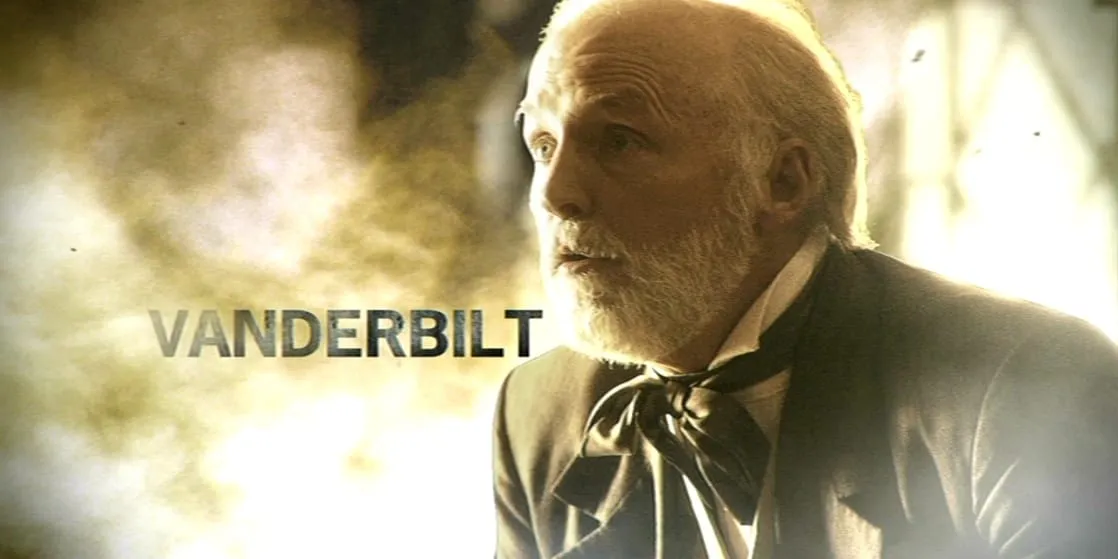
Luego de la guerra civil Estados Unidos comienza a reconstruirse, algo que escucharemos repetidamente en cada capítulo, sin embargo, es de resaltar como la nación se recupera luego de una sangrienta guerra que deja a su economía y sociedad tambaleando. Para 1865 Estados Unidos apuesta por el poder de la locomotora para reconstruir la nación, Vanderbilt ve el futuro de la vías férreas, las personas llegaran más rápido a sus destinos al igual que las mercancías y bienes de la nación, deside realizar una jugada bastante impresionante y que no muchas personas estarían dispuestas a hacer, vende su flota de barcos e invierte totalmente en el ferrocarril, una jugada que resaltaría su habilidad en los negocios y en la adaptación de las circunstancias.
Muy pronto ve los frutos de esa decisión y se convierte en el hombre más rico de la nación gracias a su apuesta por el ferrocarril, lo que nos lleva a la primera lección de este capítulo.

Lecciones:
Oportunidades y Adaptación
Un verdadero emprendedor debe reconocer las oportunidades, puede ser que estas oportunidades requieran de mucho estudio y análisis, Vanderbilt estaba seguro que uno de los aspectos que cambiaría a Estados Unidos era las vías férreas, la nación se encontraba en construcción de largas vías de tren que conectaba cada rincón del país, así como la unión de los océanos Atlántico y Pacifico. Este gran empresario ve la oportunidad de ganar dinero apostando al transporte de una nación en reconstrucción.
La adaptación en los procesos de cambios son fundamentales para el éxito, Vanderbilt pudo percatarse que el futuro estaba en las compañías ferroviarias, no en el transporte por barco, la conexión del país por vías de tren sería un pilar fundamental para la nueva potencia mundial.
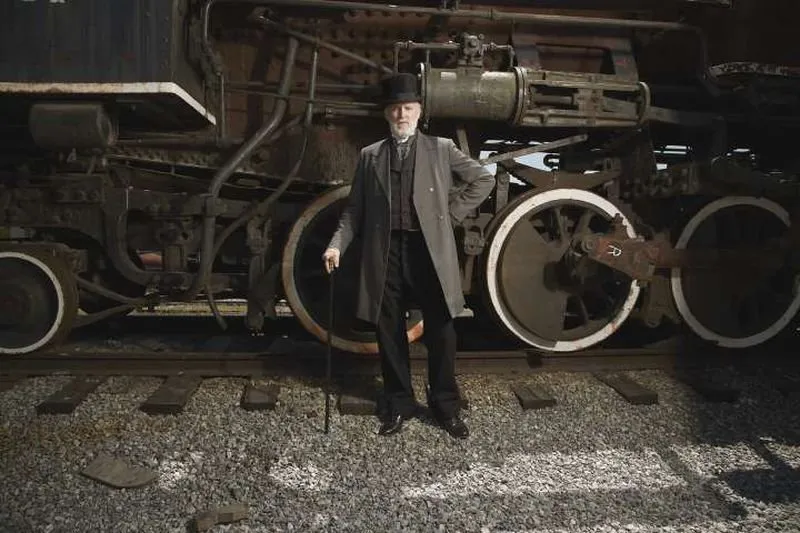
Muchas personas se sienten tan cómodas que se rehúsan al cambio, esto puede llevar a un negocio a la quiebra ante el avance tecnológico o por situaciones excepcionales (como una pandemia mundial), si los que toman las decisiones no están dispuestos transformar su negocio según las nuevas tendencias tecnológicas y circunstanciales por mucho que trabajes no podrán sacar su negocio adelante, Vanderbilt entendía esto a la perfección, lo demuestra no solo realizando una minúscula o una inversión parcial, simplemente invirtió todo lo que tenía.
En este caso no lo podemos ver como una apuesta, porque nadie apuesta su futuro, el reconoció el cambio e investigo, estudió y se informó antes de tomar una decisión, este era un hombre inteligente así que no se lanzaría al vacío sin tener la información en su mano.

Análisis de su Estrategia para Ampliar su Imperio
Una de sus grandes batallas la libró contra la competencia, veían a Vanderbilt como un anciano débil y querían aprovechar esa oportunidad para aplastar su compañía, pero estarían muy equivocados. Para ahogar a su competencia Vanderbilt hace una jugada despiadada, cierra el único puente que conecta a la ciudad de Nueva York la cual tiene uno de los puertos más importantes del país, dejando a la competencia pendiendo de un hilo al no poder trasladar sus pasajeros y mercancías al puerto más activo del país.
Los accionistas de las empresas rivales al conocer la situación de no poder llevar la mercancía al principal puerto del país, venden sus acciones haciendo que el precio caiga estrepitosamente, ante esta situación Vanderbilt compra las acciones a un precio de regalo, siendo el único que podría hacerlas subir abriendo el puente que el mismo cerró.

Esto en estos momentos puede ser una acción ilegal, sin embargo, en esa época se jugaba con las reglas establecidas y pudo hacerse con las acciones de las empresas rivales y construir la empresa ferroviaria más grande de todo el país. Un movimiento que puede ser penalizado hoy en día pero que sin duda fue una magnifica jugada de ajedrez en el mundo empresarial para ese momento.
Esta superioridad la resalta con la construcción de una enorme estación que une las principales vías férreas del país, la mayor infraestructura en la ciudad de Nueva York para esa época y que representaba su poderío en la industria, una estación que es parte de la ciudad hoy en día.

La Codicia lo Hace Predecible
A pesar de tener un gran poder en la industria, Vanderbilt quería tener monopolizada todas las vías férreas del país, así que vio la oportunidad de adquirir una empresa más, sin embargo, los gerentes de esta compañía sabían de este movimiento del comodoro así que diluyeron las acciones imprimiendo muchas más, evidentemente una acción ilegal, pero en ese tiempo se estaba construyendo el mundo financiero que conocemos hoy, pero era una jugada en contra de la codicia de Vanderbilt el cual invirtió alrededor de 7 millones de dólares equivalentes a 1.000 millones en la actualidad, todo en acciones diluidas cuyo valor bajaba con cada impresión.

Innovación
Uno de las lecciones más importantes para pequeños emprendedores es el sentido de la innovación, en toda esta miniserie se hablará de la innovación, sin embargo, muchos piensan que la innovación es producido por un invento totalmente nuevo, pero no es esa la única manera de innovar. Las ideas y los procesos pueden ser innovadores, en pocas palabras la manera de hacer las cosas en ese sentido Vanderbilt tuvo una habilidad clara para innovar a pesar de que no inventó nada de lo que poseía pero la manera de hacer las cosas lo llevó a la cima.
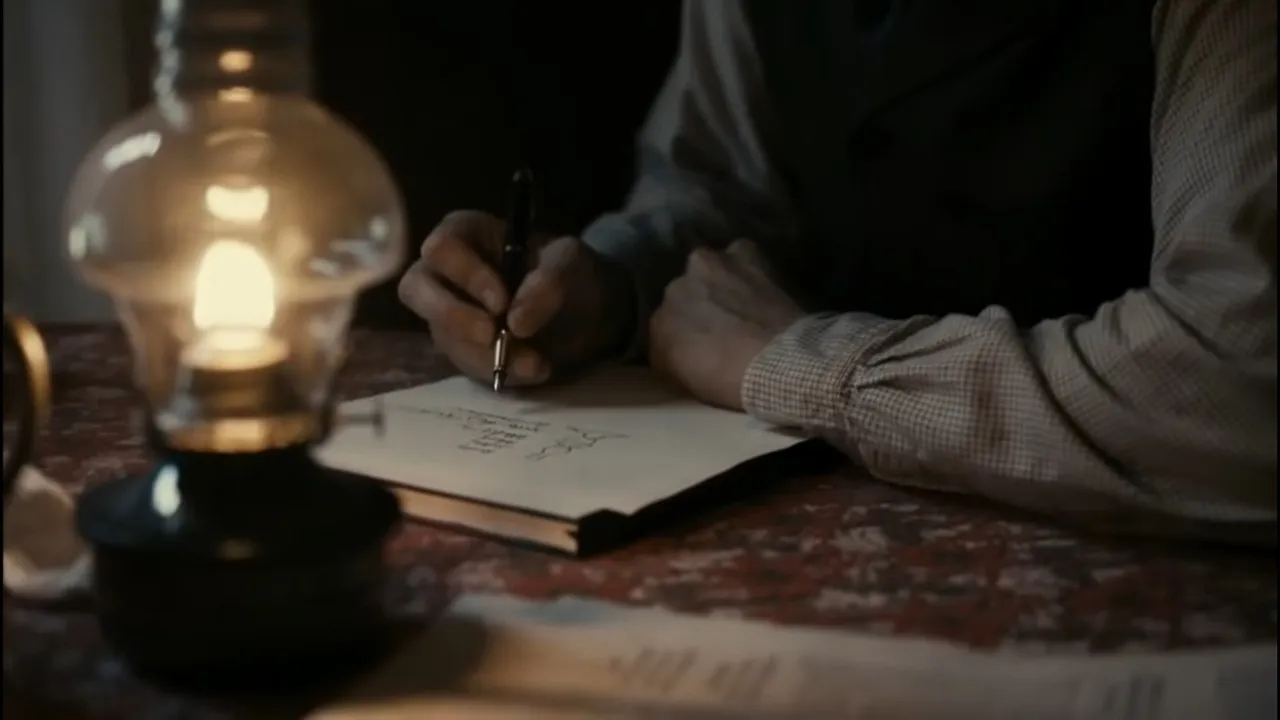
Luego de perder millones de dólares y no hacerse con el control de la vía férrea que quería, su manera de innovar era en la carga que transportaban sus trenes, al no poder construir más vías debía llenar sus trenes con mercancía, de esa manera ampliaría su dominio en la industria. Ve una oportunidad para transportar petróleo, este se refina y crea querosene una sustancia empleada para suministrar luz, todo el país necesita querosene para iluminar las calles y casas es un producto cuya demanda no tiene techo y que puede llenar sus trenes con facilidad.
Ve la oportunidad de manipular a un joven petrolero, un hombre con los gastos hasta el cuello y que podría fácilmente convencer por poco, sin embargo, ese joven con el que negociará es nada más y nada menos que John D. Rockefeller, el cual hace su aparición en la miniserie.
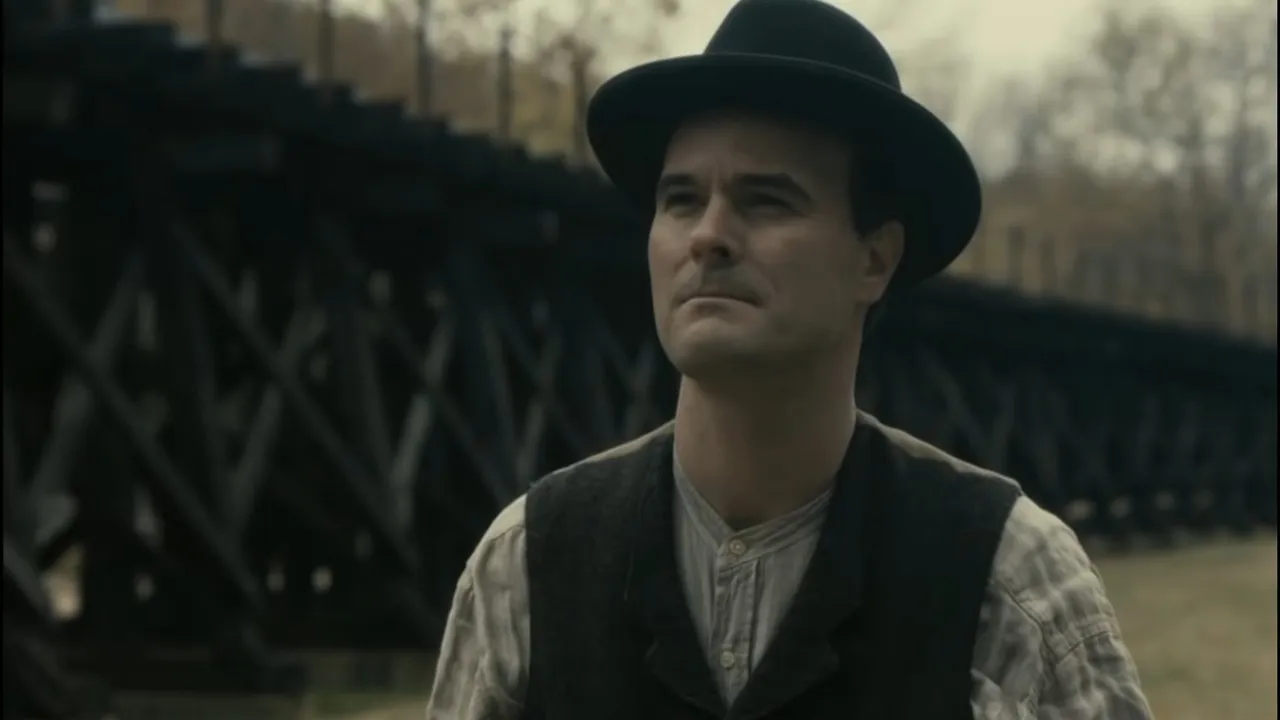
Fin del Episodio
De esta manera culmina el primer episodio de esta grandiosa miniserie de History, me encanta este tipo de docudrama, es un episodio que muestra que la inteligencia, la estrategia y la innovación pueden hacer nacer a un imperio industrial y financiero, sin dudas al terminar el episodio queremos ver el siguiente inmediatamente.
Emprendedores
Muchos somos emprendedores, si estamos creando contenido y apostando por Hive somos emprendedores en un nuevo mundo financiero, las criptomonedas son esa innovación que necesitamos para crear nuestro futuro, aunque pensemos que los temas financieros no nos conciernen las finanzas y el dinero están en todos lados, necesitamos el dinero para todo en este mundo moderno así que el tema este tipo de temas es para todos.
Aunque no tengamos un negocio propio siempre podremos innovar en cómo hacer las cosas, tratando siempre de hacerlas de la mejor manera de una forma eficiente, en nuestro trabajo o en nuestros proyectos. Este tipo de miniseries son un catalizador para motivar a las personas a construir su futuro y como siempre digo, descartar lo malo y aprender de las buenas lecciones que nos deja esta fantástica miniserie.
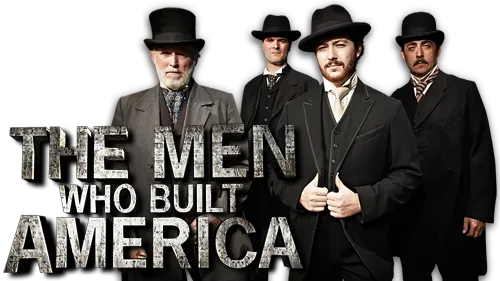
Gracias por tu lectura, hasta la próxima


The Men Who Built America (Chapter 1)
[English Version]
Hello Hivers entrepreneurs, today is a very special day because I want to start commenting, analyzing and extracting some lessons from a miniseries that I really love, is a production where we will find a lot of historical and financial information, among aspects that can motivate us in our work, entrepreneurship and many other things, this miniseries is called Giants of Industry in Latin America, in English called The Men Who Built America and broadcast by History Channel.

This is a miniseries of 2012 is within the docudrama genre, this is characterized by the visualization of dramatizations within a historical context or a scenario of real events, basically it is a documentary with dramatizations. In this miniseries we will discover aspects of the lives of great American businessmen, iconic examples of the American dream such as Cornelius Vanderbilt, John D. Rockefeller, Andrew Carnegie, J.P. Morgan and Henry Ford, all leading the world into a new era and with the largest private equity fortunes in history.

Chapter 1: Vanderbilt
Known as the Commodore, was a man of humble origins but with great energy and rudeness, something that would characterize his character in his life and in the business world, was a man who started with a single ferry that later becomes a fleet of ships, hence the nickname of Commodore.

After the Civil War the United States begins to rebuild, something we will hear repeatedly in each chapter, however, it is noteworthy how the nation recovers after a bloody war that leaves its economy and society reeling. By 1865 the United States bets on the power of the locomotive to rebuild the nation, Vanderbilt sees the future of the railroads, people will arrive faster to their destinations as well as the nation's merchandise and goods, he decides to make a very impressive move that not many people would be willing to make, he sells his fleet of ships and invests entirely in the railroad, a move that would highlight his ability in business and in adapting to the circumstances.
He soon sees the fruits of that decision and becomes the richest man in the nation thanks to his bet on the railroad, which brings us to the first lesson of this chapter.

Lessons:
Opportunities and Adaptation
A true entrepreneur must recognize opportunities, it may be that these opportunities require much study and analysis, Vanderbilt was sure that one of the aspects that would change the United States was the railroads, the nation was under construction of long railroads that connected every corner of the country, as well as the union of the Atlantic and Pacific oceans. This great entrepreneur sees the opportunity to make money by betting on the transportation of a nation under reconstruction.
Vanderbilt realized that the future lay in railroads, not in ship transportation. Connecting the country by railroads would be a fundamental pillar for the new world power.

Many people feel so comfortable that they refuse to change, this can lead a business to bankruptcy in the face of technological progress or exceptional situations (such as a global pandemic), if the decision makers are not willing to transform their business according to the new technological and circumstantial trends, no matter how hard they work they will not be able to move their business forward, Vanderbilt understood this to perfection, he demonstrates this not only by making a small or partial investment, he simply invested everything he had.
In this case we cannot see it as a gamble, because no one bets their future, he recognized the change and researched, studied and informed himself before making a decision, this was a smart man so he would not jump into the void without having the information in his hand.

Analysis of his Strategy to Expand his Empire
One of his greatest battles was against the competition, they saw Vanderbilt as a weak old man and wanted to take advantage of that opportunity to crush his company, but they would be very wrong. To stifle his competition Vanderbilt makes a ruthless move, he closes the only bridge that connects New York City which has one of the most important ports in the country, leaving the competition hanging by a thread by not being able to move their passengers and goods to the busiest port in the country.
The shareholders of the rival companies, knowing the situation of not being able to take the merchandise to the main port of the country, sell their shares causing the price to fall sharply, in this situation Vanderbilt buys the shares at a gift price, being the only one who could make them rise by opening the bridge that he himself closed.

This at this time may be an illegal action, however, at that time it was played by the established rules and he was able to take over the shares of rival companies and build the largest railroad company in the entire country. A move that may be penalized today but was undoubtedly a magnificent chess move in the business world at the time.
This superiority is highlighted by the construction of a huge station linking the country's major railroads, the largest infrastructure in New York City at the time and representing its power in the industry, a station that is part of the city today.

Greed Makes It Predictable
Despite having great power in the industry, Vanderbilt wanted to have monopolized all the railroads in the country, so he saw the opportunity to acquire one more company, however, the managers of this company knew of this move of the commodore so they diluted the shares by printing many more, obviously an illegal action, but at that time the financial world we know today was being built, but it was a move against the greed of Vanderbilt who invested about 7 million dollars equivalent to 1. 1 billion today, all in diluted shares whose value went down with each printing.

Innovation
One of the most important lessons for small entrepreneurs is the sense of innovation. Throughout this miniseries we will talk about innovation, however, many think that innovation is produced by a totally new invention, but that is not the only way to innovate. Ideas and processes can be innovative, in short the way of doing things in that sense Vanderbilt had a clear ability to innovate even though he did not invent anything he owned but the way of doing things took him to the top.

After losing millions of dollars and not gaining control of the railroad he wanted, his way to innovate was in the cargo that his trains carried, not being able to build more tracks he had to fill his trains with merchandise, that way he would expand his dominance in the industry. He sees an opportunity to transport oil, this is refined and creates kerosene a substance used to supply light, the whole country needs kerosene to illuminate the streets and houses is a product whose demand has no ceiling and that can fill their trains with ease.
He sees the opportunity to manipulate a young oilman, a man whose expenses are up to his neck and who could easily convince for little, however, that young man with whom he will negotiate is none other than John D. Rockefeller, who makes his appearance in the miniseries.

End of the Episode
Thus ends the first episode of this great History miniseries, I love this kind of docudrama, it is an episode that shows that intelligence, strategy and innovation can give birth to an industrial and financial empire, no doubt at the end of the episode we want to see the next one immediately.
Entrepreneurs
Many of us are entrepreneurs, if we are creating content and betting on Hive we are entrepreneurs in a new financial world, cryptocurrencies are that innovation we need to create our future, even if we think that financial issues do not concern us finances and money are everywhere, we need money for everything in this modern world so the topic this kind of topics is for everyone.
Even if we do not have our own business we can always innovate in how to do things, always trying to do them in the best way in an efficient way, in our work or in our projects. This kind of miniseries are a catalyst to motivate people to build their future and as I always say, discard the bad and learn from the good lessons that this fantastic miniseries leaves us.

Thank you for your reading, until next time

Translated with www.DeepL.com/Translator

